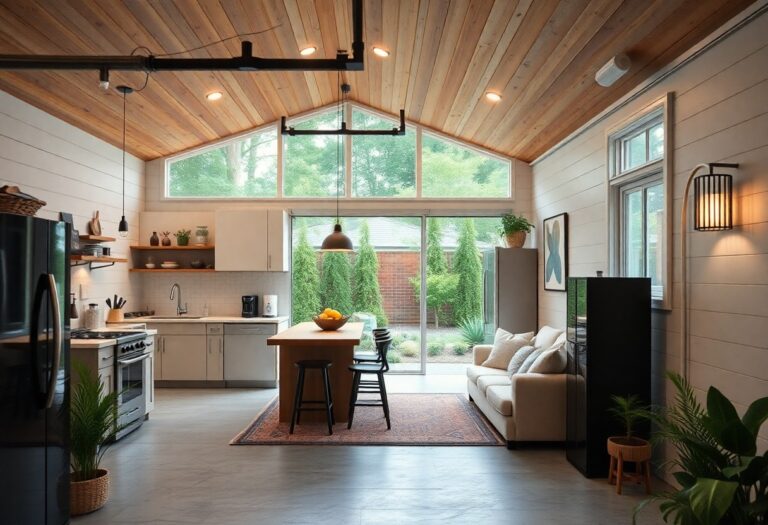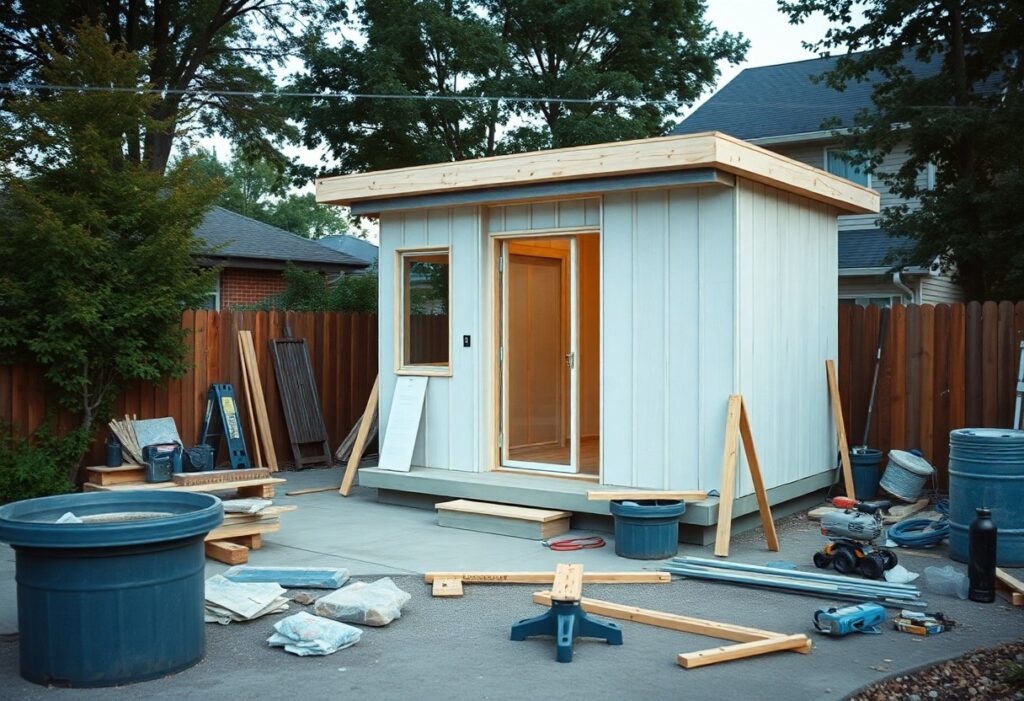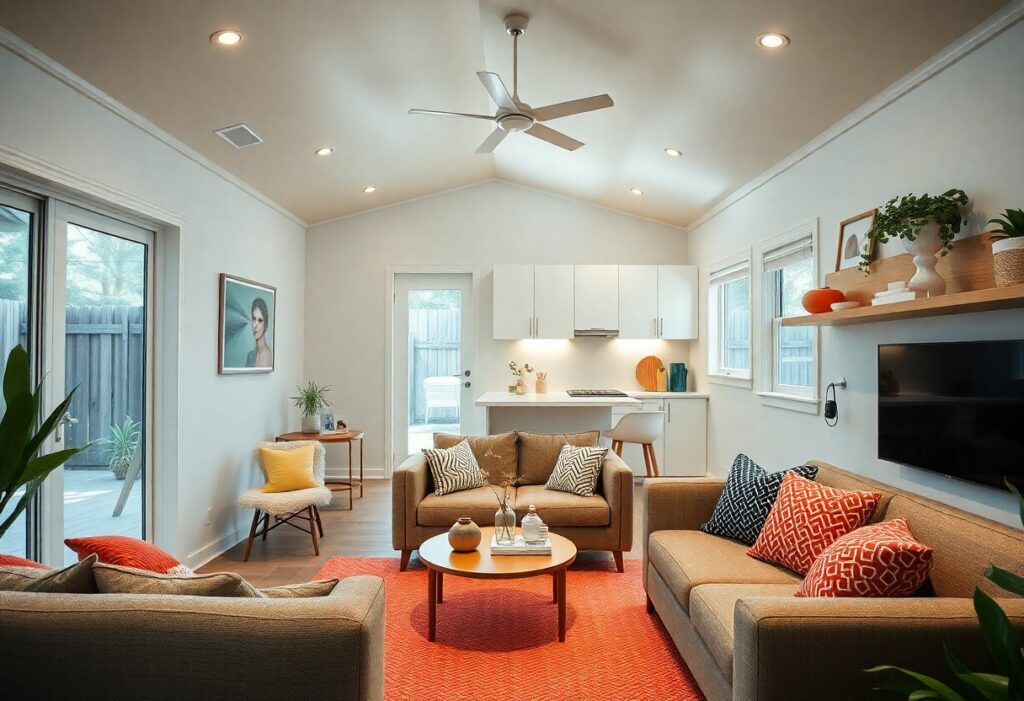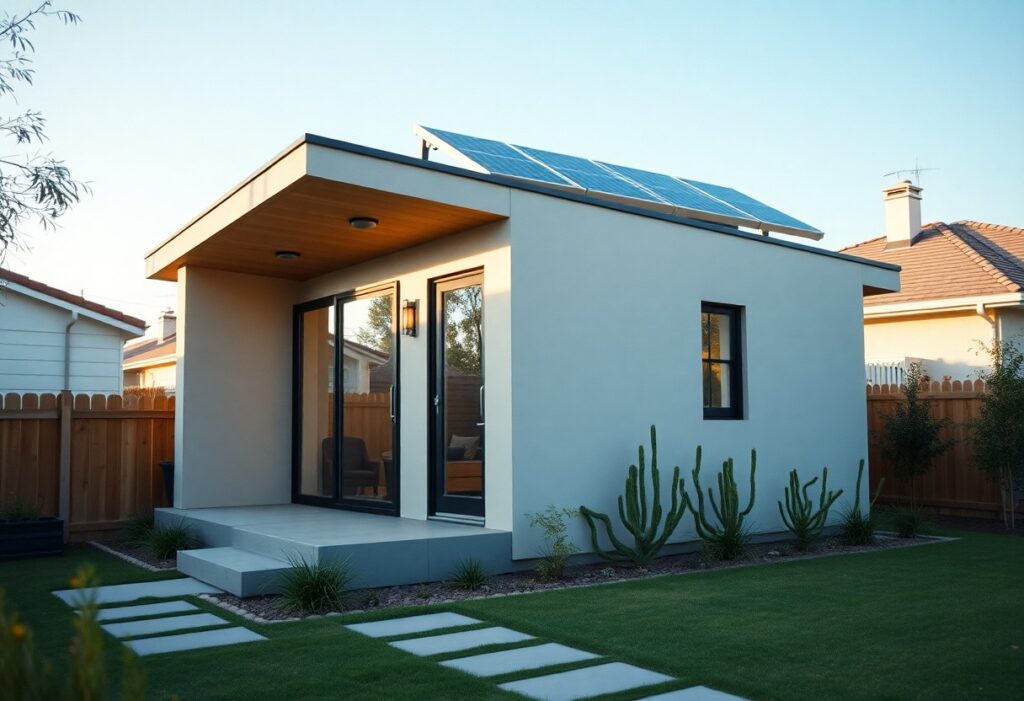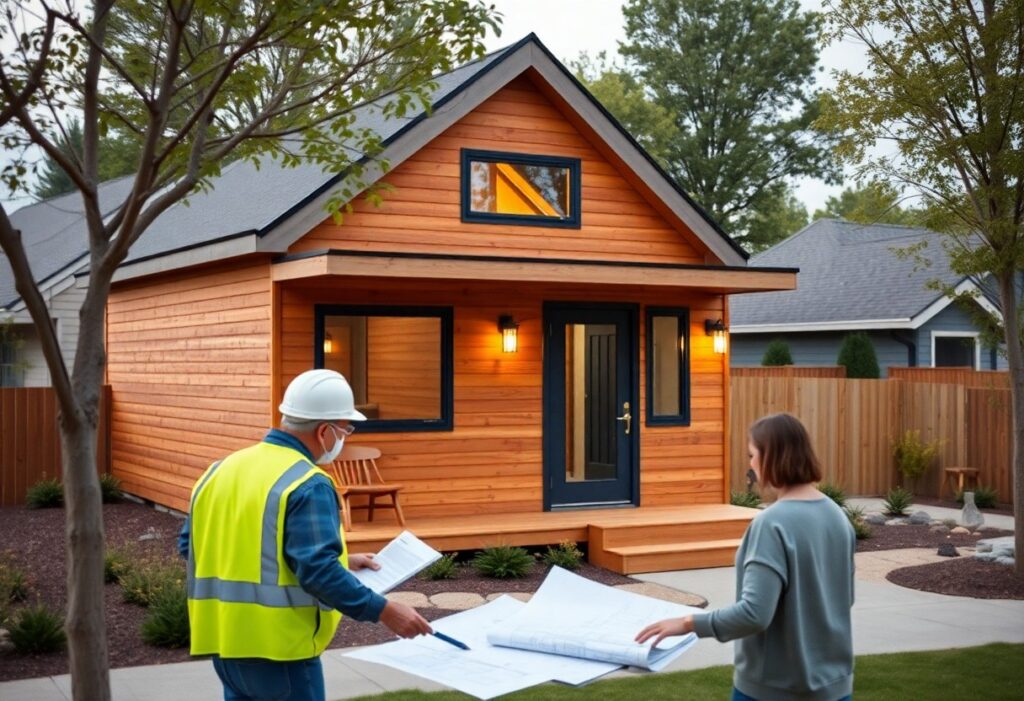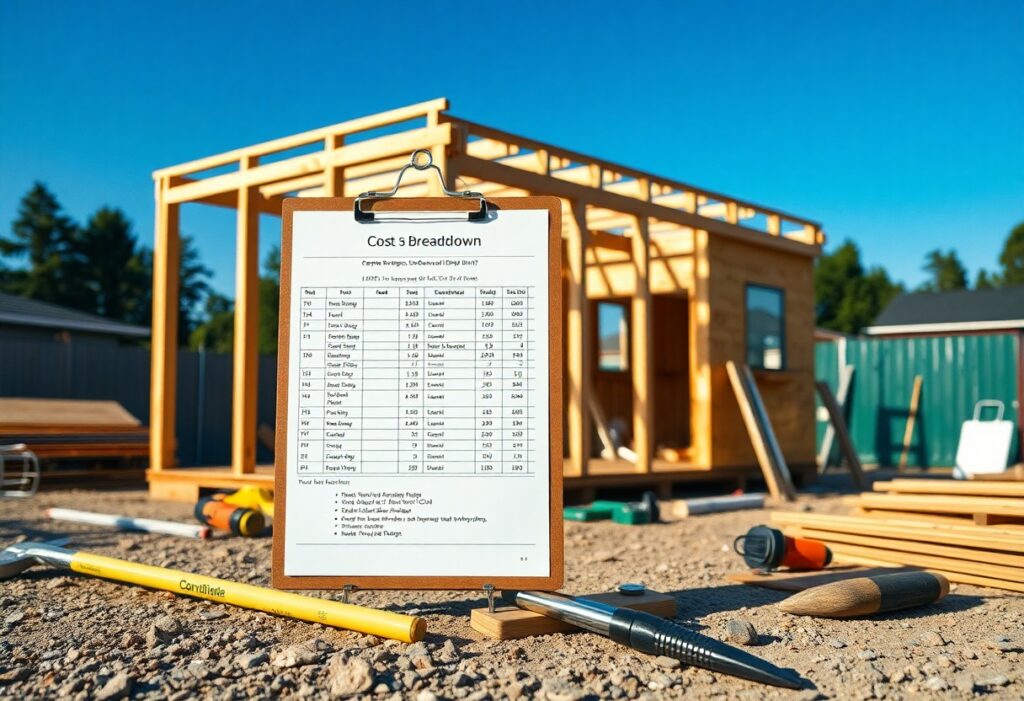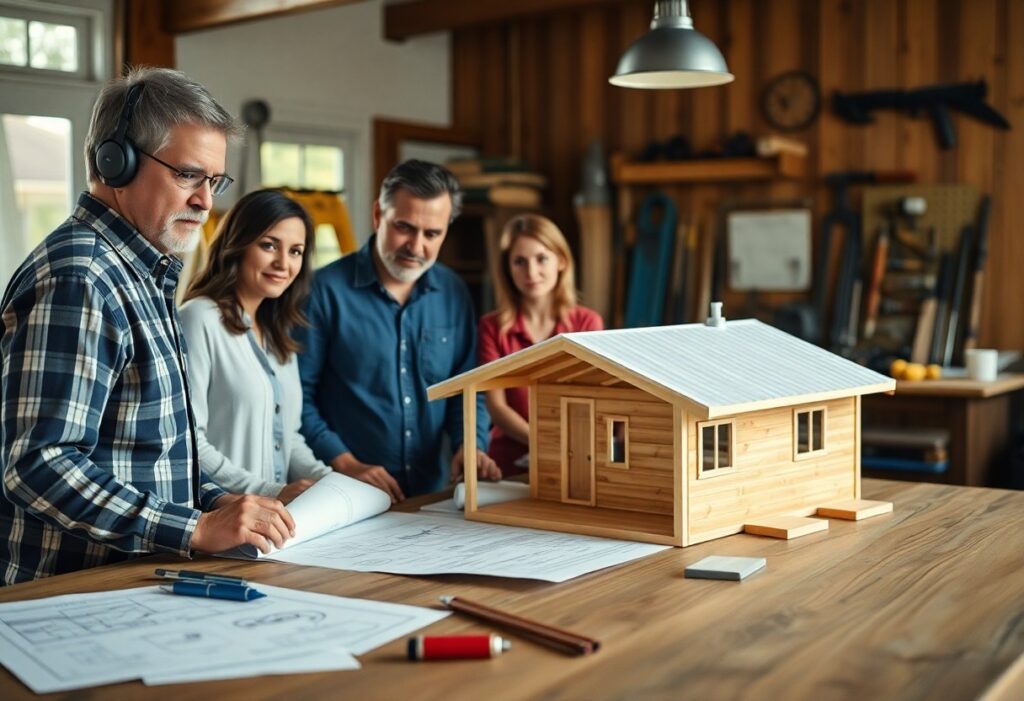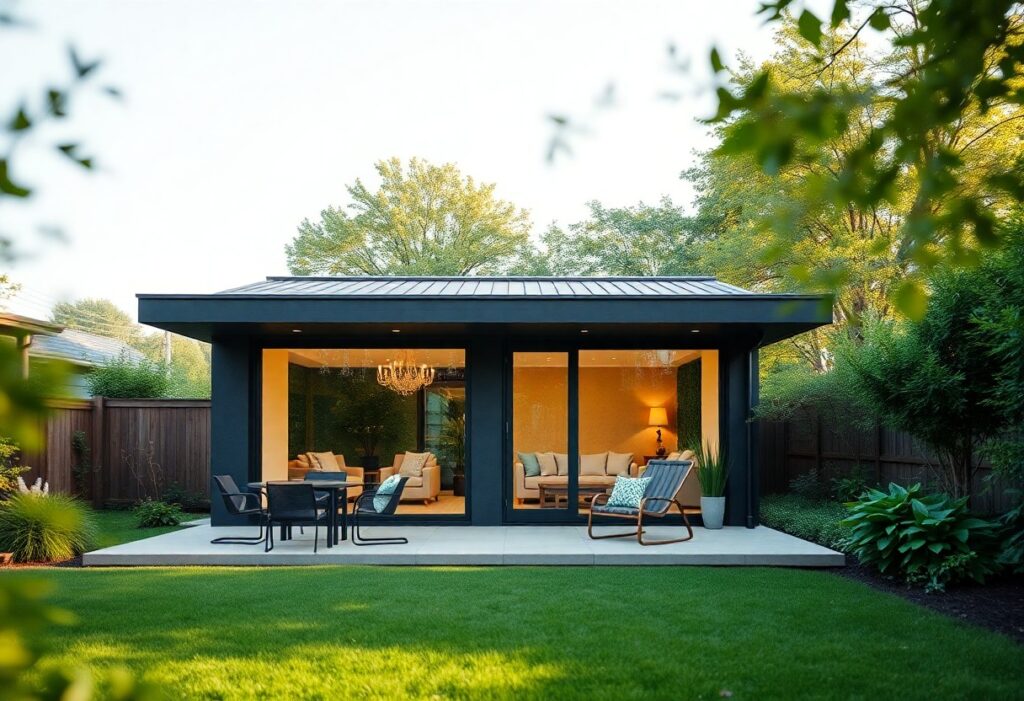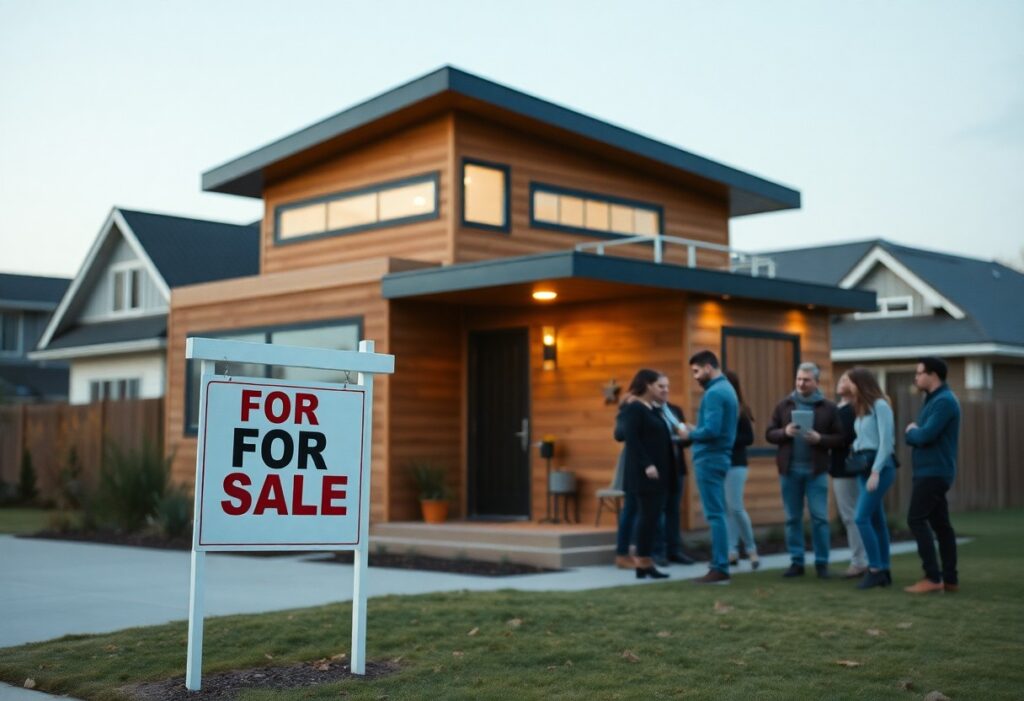There’s a fantastic way to boost your property’s value while providing additional income or space for your family: transforming your garage into an Accessory Dwelling Unit (ADU). By making this conversion, you not only maximize your existing space but also cut down on costs associated with new construction. With increased rental potential and minimal building expenses, this approach can lead to significant savings. In this blog post, we’ll detail the steps you need to take to successfully convert your garage into an ADU and start reaping the benefits.
Key Takeaways:
- Adding value: A garage conversion ADU can significantly increase your property’s overall value.
- Rental income: Converting your garage into an accessory dwelling unit can provide a steady stream of rental income.
- Space optimization: Make better use of underutilized garage space, turning it into a functional living area.
- Tax benefits: Owning an ADU may provide potential tax deductions related to renovations and rental income.
- Cost-effective: Compared to traditional home extensions, garage conversions are often more budget-friendly.
- Flexible design: ADUs can be customized to suit various needs, such as a home office, guest suite, or rental property.
- Increased demand: With rising housing costs, there is a growing demand for rental units, making an ADU a smart investment.
1. Evaluate local regulations for ADU construction requirements.
2. Choose a budget-friendly design to minimize costs.
3. Utilize existing structures to cut renovation expenses.
4. Consider DIY projects for personal touches and savings.
5. Rent out the ADU for additional income opportunities.
6. Increase property value with a well-designed garage conversion.
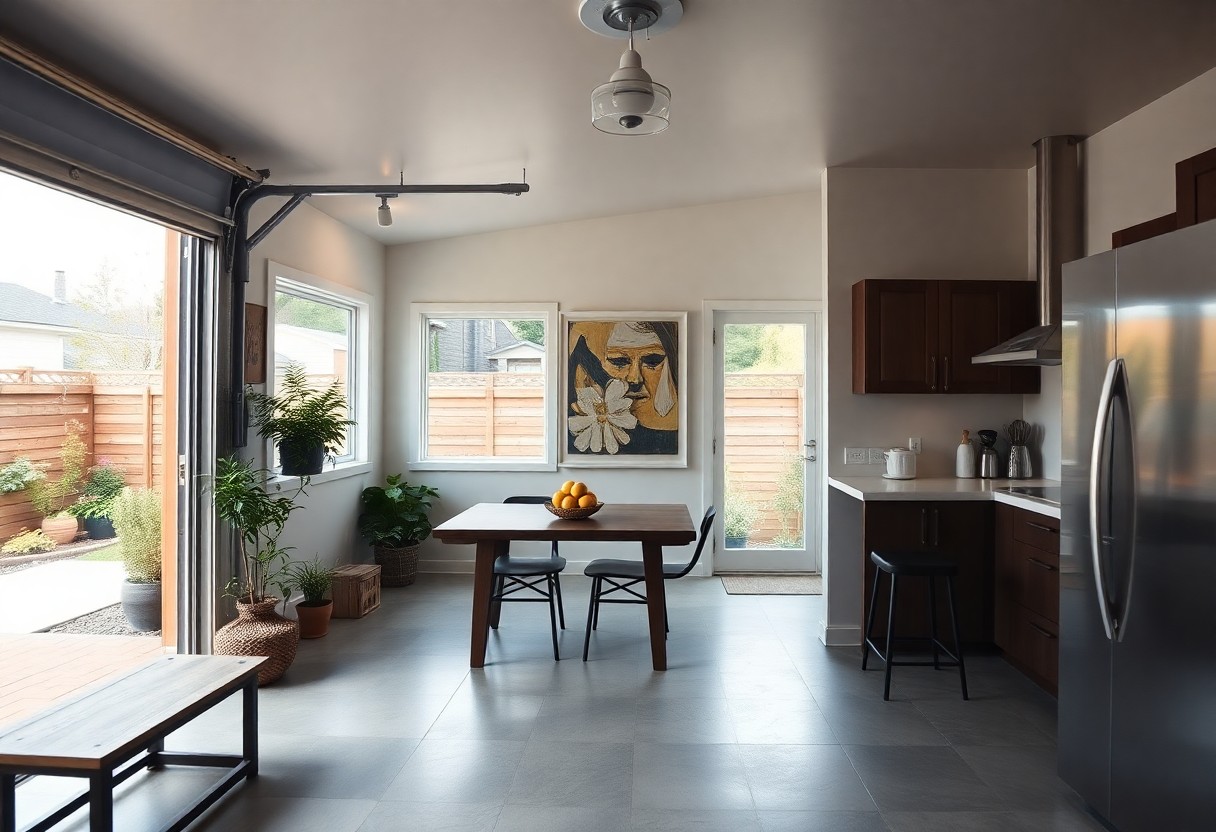
Understanding Garage Conversions
Your garage can be transformed into a functional space, providing numerous opportunities for additional living quarters, rental income, or even a quiet workspace. Garage conversions not only enhance your home’s value but also maximize underutilized areas to create personalized living solutions. This approach is increasingly popular among homeowners looking to generate income or expand their home without the complexity of traditional extensions.
Definition of ADUs
To put it simply, Accessory Dwelling Units (ADUs) are secondary housing units located on a single-family lot. These can take various forms, including basement apartments, in-law suites, or garage conversions, offering homeowners versatile living space while enhancing property value.
Benefits of a Garage Conversion ADU
An ADU created through a garage conversion offers numerous advantages, including increased property value, potential rental income, and additional living space for family members. It utilizes unused square footage, making efficient use of your existing space while enhancing the overall function of your home.
Even with initial costs in mind, the long-term benefits of a garage conversion ADU can far outweigh your investment. You’ll enjoy a significant boost in property value, as these units are sought after in today’s housing market. Additionally, having a separate living unit allows for passive income opportunities through rentals, providing financial relief and helping you pay off mortgage or renovation costs. Moreover, turning your garage into an ADU maximizes usable space, allowing you to accommodate family members, guests, or even a home office without intruding on your main living areas.
Financial Considerations
You need to carefully assess the financial aspects of a garage conversion ADU. From initial costs to potential returns, understanding your budget and the value that the project can bring to your property is necessary for making informed decisions. By weighing these factors, you can maximize your investment and ensure that your project aligns with your financial goals.
Initial Costs and Budgeting
For planning a garage conversion, you should outline an accurate budget. Costs can vary widely based on factors such as local permits, materials, and labor. It’s wise to include a contingency fund for unexpected expenses, as this can help alleviate stress and keep your project on track financially.
Potential Return on Investment
For homeowners, a garage conversion ADU offers an attractive return on investment (ROI). This type of project can increase your property’s value significantly. Whether you choose to rent out the space or use it for personal needs, the financial benefits can be substantial, often recouping your investment within a few years.
Budgeting for a garage conversion is key to achieving a positive return. A well-planned project can increase property value by 15% to 20% or more, particularly in high-demand areas. The potential monthly rental income generated by an ADU can offset your initial investment, allowing you to break even quickly. Always consider local market trends and consult with real estate professionals to accurately assess the financial benefits of your conversion.
Planning and Design
Keep in mind that effective planning and design are necessary for your garage conversion ADU project. By carefully considering the layout, functionality, and aesthetics, you can optimize the use of your available space. For insights on how to maximize your project, check out Garage Conversion ADU: How to Maximize Your Space …
Legal Requirements and Permits
About to start your garage conversion? Familiarize yourself with the local legal requirements and permits necessary for such projects. Many jurisdictions require you to obtain permits prior to altering the structure, conducting inspections, and ensuring the changes meet building codes. Neglecting this step can lead to fines or even the need to revert changes.
Design Tips for Maximum Space Utility
Maximum efficiency is the name of the game when it comes to your garage conversion. Utilize multifunctional furnishings and consider an open concept layout to enhance space utility. Here are some tips to keep in mind:
- Incorporate built-in storage solutions.
- Choose foldable furniture for flexibility.
- Use light colors to create a sense of openness.
After optimizing your space, you’ll find your converted garage not only looks great but functions just how you need it to.
Utility in design can significantly impact your garage conversion’s effectiveness. Prioritize vertical space by installing shelves or cabinets to keep the floor clear. When planning, consider the following:
- Maximize natural light with large windows.
- Segment areas through strategic furniture placement.
- Incorporate smart storage solutions that save space.
After implementing these strategies, your garage conversion will not only be aesthetically pleasing but also highly functional.
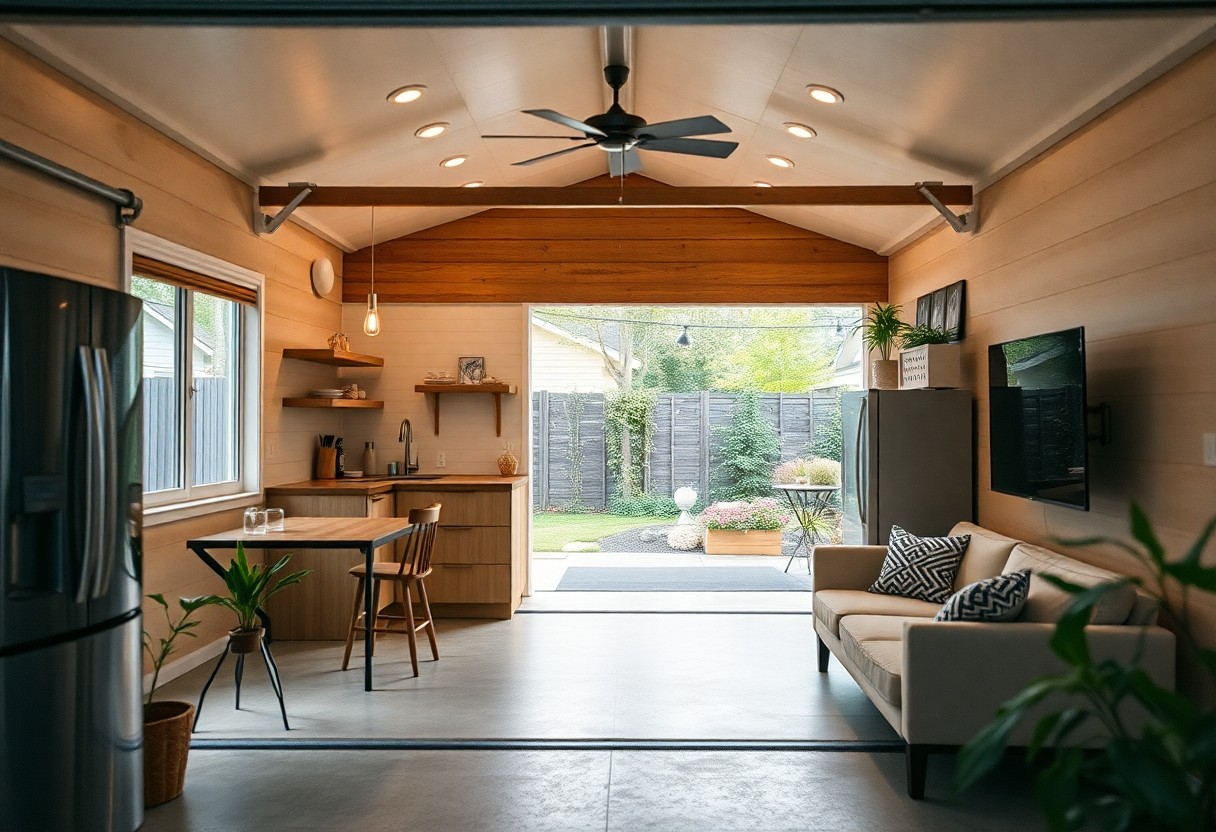
DIY vs. Hiring Professionals
For your garage conversion ADU project, deciding between DIY and hiring professionals can significantly impact both your budget and the overall quality of the work. While DIY may offer a sense of accomplishment and initial cost savings, enlisting seasoned experts can ensure the project meets building codes, adheres to safety standards, and delivers a professional finish that enhances your property’s value.
Pros and Cons of DIY Projects
After considering the DIY route, examining the advantages and disadvantages is imperative:
| Pros | Cons |
|---|---|
| Cost savings on labor | Potential for mistakes |
| Complete control over design | Time-consuming process |
| Personal satisfaction in the work | Limited expertise in certain areas |
| Flexibility in scheduling | Risk of subpar construction quality |
| Opportunity to learn new skills | May affect your property’s resale value |
When to Seek Professional Help
After weighing your options, it may be time to consider hiring a professional. If your garage conversion involves complex tasks, like electrical work, plumbing, or structural changes, it’s wise to consult with experts.
Consequently, if you feel overwhelmed or unsure about specific aspects of the project, calling in professionals can save you both time and stress. Complex tasks require a skilled touch to ensure compliance with local regulations. Moreover, professionals bring experience and knowledge, which can prevent costly errors and enhance safety. Investing in expert assistance ultimately can lead to a higher quality result that you can enjoy for years to come.
Maximizing Energy Efficiency
Now that you’ve decided to convert your garage into an ADU, it’s crucial to focus on maximizing energy efficiency. By implementing various strategies, you can significantly reduce your energy bills while creating a comfortable living space. This not only saves you money but also enhances the overall value of your property, making your investment more worthwhile.
Upgrading Insulation and Utilities
Above all, one of the most effective ways to improve energy efficiency is by upgrading your insulation and utilities. Investing in high-quality insulation reduces heat loss during colder months and keeps your ADU cooler in the summer, ultimately lowering your heating and cooling costs. Consider replacing old utilities with energy-efficient models that consume less energy, further decreasing your expenses.
Sustainable Materials and Energy Solutions
Maximizing the use of sustainable materials and energy solutions can lead to long-term savings and a more environmentally friendly space. Incorporating items such as reclaimed wood, recycled steel, and low-VOC paints not only contributes to the sustainability of your ADU but may also qualify you for tax incentives or rebates.
Utilities play an integral role in enhancing the sustainability of your ADU. By incorporating solar panels, you can generate your own electricity, leading to substantial savings on energy costs. Consider installing a high-efficiency heating and cooling system along with LED lighting to optimize energy consumption. Additionally, rainwater harvesting systems can minimize water usage, further cutting down on utility bills. Prioritizing these sustainable solutions not only benefits the environment but also makes your living space more economical and appealing.
Financing Options
After deciding to convert your garage into an Accessory Dwelling Unit (ADU), exploring various financing options is crucial. You can consider traditional mortgages, home equity lines of credit, or specialized ADU loans designed to cover the costs of conversion. Additionally, programs may be available to assist with funding, making your project more affordable. Always evaluate the terms and interest rates to ensure you choose the best option for your budget.
Exploring Loans and Grants
Across the country, numerous loans and grant programs exist specifically for homeowners interested in ADU conversions. These financial aids can significantly offset your costs. Research federal, state, and local government initiatives that support the development of ADUs, as they could provide you with the necessary funds to make your conversion project more viable.
Tax Incentives for ADU Conversions
Across various regions, numerous tax incentives may be available to homeowners who convert their garages into ADUs. These incentives can lower your overall expenses and enhance the return on investment for your property. Consulting a tax professional can help you understand which benefits apply to you and how to maximize your savings.
Considering the landscape of tax incentives for ADUs, you could potentially qualify for deductions or credits based on your local laws. Engaging with local property tax programs might offer significant savings if you rent the ADU or use it as an affordable housing option. Additionally, some areas may provide exemptions on property taxes for a specific period post-conversion, allowing you to recoup some of your investment sooner. Always check your local regulations to fully exploit these financial benefits.
To wrap up
Drawing together the insights on saving money with a garage conversion ADU, you can maximize your investment by planning wisely and utilizing available resources. By assessing your space, understanding local regulations, and prioritizing energy efficiency, you can effectively transform your garage into a cost-effective living area. For a comprehensive overview of the process, check out The Ultimate Garage Conversion ADU Guide: A Step-by-… to gain detailed strategies that align with your financial goals.
FAQ
Q: What is a Garage Conversion ADU?
A: A Garage Conversion ADU (Accessory Dwelling Unit) is the process of transforming an existing garage into a livable space, such as a studio apartment or guest house. These units can serve various purposes, including rental income or providing space for family members.
Q: How can a Garage Conversion ADU help me save money?
A: Converting your garage into an ADU can save you money in multiple ways, including reducing housing expenses by providing additional rental income, lowering utility costs through shared resources, and avoiding the high costs associated with moving or purchasing a new property.
Q: What permits do I need to convert my garage into an ADU?
A: Permit requirements vary by location, but generally, you will need a building permit, zoning approval, and possibly an inspection to ensure that the conversion meets local building codes. It’s advisable to check with your local municipal planning department for specific requirements in your area.
Q: Is it cheaper to convert a garage than to build a new ADU?
A: In many cases, converting an existing garage is more cost-effective than building a new unit from scratch. Costs associated with permits, labor, and materials can be significantly lower because you are utilizing an existing structure, which can save both time and money.
Q: Can I finance my garage conversion project?
A: Yes, there are several financing options available for garage conversion projects, including home equity loans, personal loans, or lines of credit. Additionally, some local government programs may offer financial assistance or incentives specifically for ADU construction, making it easier to manage upfront costs.
Q: How can a garage conversion increase the value of my property?
A: A well-executed garage conversion ADU can significantly enhance the value of your property. By adding livable space, you increase the square footage, making your home more attractive to potential buyers. Additionally, if you turn it into a rental unit, the income potential can be a strong selling point.
Q: What are some potential drawbacks of converting a garage into an ADU?
A: Some potential drawbacks may include limited space, potential zoning restrictions, and the costs of renovations that may exceed your budget. It’s also vital to consider if the conversion would meet your needs or those of potential renters. Assessing these factors early in the process can help mitigate challenges.

